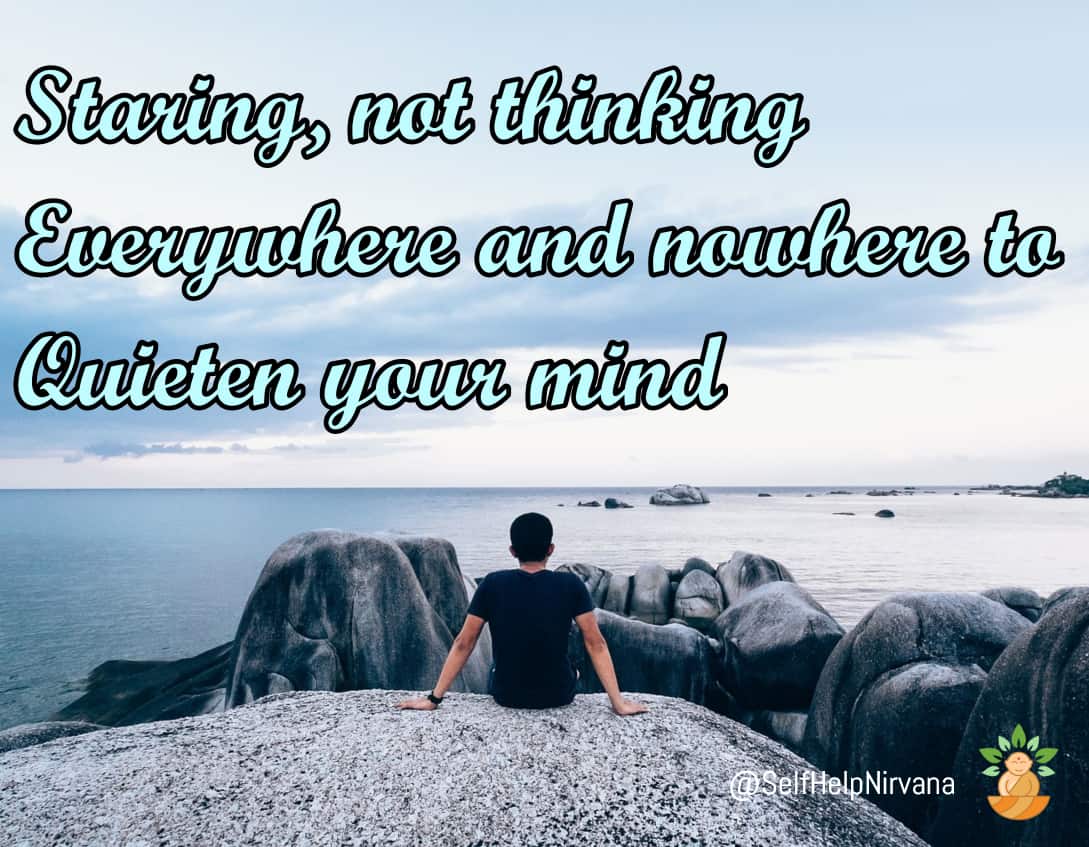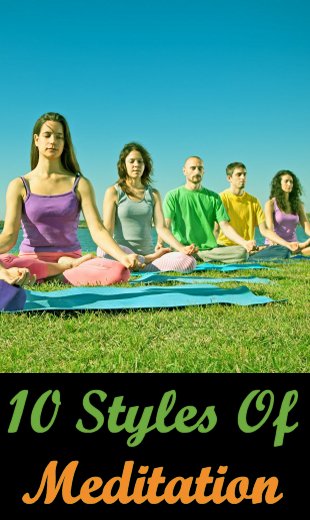Boketto – What It Is, What It Isn’t, And The Reasons It’s Worth Practising
Even if you have never heard of the word “boketto”, there’s a good chance you’ve actually done it, at some stage in your life (probably as a child).
This article will explore what boketto is, what it’s not, and the benefits of practising it on a regular basis.
What Is Boketto?
Boketto is one of many words that come from a foreign language (Japanese, in this case), but which do not have a precise English translation.
The best approximation of what it means is the act of gazing into the distance (or into the sky, or space), without thinking about anything in particular, but just being lost in the vastness of it all.
More colloquial translations might hark back to the 60s, with terms like “spaced out” or “zoned out”, except with boketto, there are no recreational drugs involved – it’s not like a trip.
So in many ways, it’s more like a form of meditation combined with those 3D magic eye images that were so popular in the 1990s.
You’re not exactly focusing on what you see – it’s more like you’re looking through it, focusing on something behind the horizon.
And you’re not thinking about anything or reciting any mantras – you just are, doing nothing.
In fact, this may be as close as many of us ever get to becoming one with the universe.
I can certainly remember staring out of my classroom window at school, not really thinking about anything at all – including what the teacher was talking about. And I’m sure you can too.
What Boketto Is Not?
If you’re thinking that boketto is just another word for daydreaming, then you’re partly right and partly wrong.
Daydreaming does involve a temporary detachment from your immediate reality, which is definitely boketto-like.
But on the other hand, daydreaming often involves a degree of usually wishful thinking – about things you’d like to do, places you wish you were right now, goals, people you want to be with. And that is not what boketto is all about.
Boketto is also not the same as being bored.
Boredom is defined as the frustration you feel when you want to engage in a satisfying activity, but cannot. For whatever reason, your feelings, thoughts, or current environment are simply not stimulating or satisfying for you.
There are studies that suggest boredom, in small doses rather than as a chronic condition (which would more accurately be described as ennui), can be beneficial. For example, it can allow allow the mind to wander and come up with new ideas, or it can be an early warning sign that your life isn’t right for you at the moment (e.g. maybe you’re in the wrong job).
And lastly, boketto is unlike some forms of meditation, such as mindfulness, where you are actively trying to be aware of your own body and what’s around you, which is not the case with boketto.
Why You Should Practise Boketto
One of the best reasons to sit and stare into space is to give your mind a chance to quieten down.
According to Time magazine, “One issue of The Times contains more information than the average person came across in a lifetime in 17th Century England.”
I know that not everybody reads The Times newspaper from cover to cover these days, but there again, this quote is probably over 20 years old now – before the Internet and social media really took off.
We are constantly assaulted by advertisements, notifications from our phones about new emails, new messages, new activity on Facebook or Twitter, music, general noise (e.g. traffic), television, telephones, and the chit chat of people around us – and that’s a LOT of information to take in and process.
Fortunately, our brains have evolved to develop filters that help us decide what we should focus on and what we can ignore, and most of the time, these filters work very well.
But they are probably not up to the task of filtering out the plethora of junk that we are exposed to every day in this modern, technological age.
So, while it’s generally accepted that one of the reasons we need sleep is to let our brains process all the events of the day, that too is an issue, because most Americans are not sleeping enough.
The result is, people not only wake up physically tired, but mentally tired too because they haven’t allowed their brains enough time to digest all of the previous day’s activities and thoughts and re-set for the day ahead.
Boketto, as well as other forms of meditation, lets you disassociate from the world around you for a while, and just take everything in – no conscious thoughts, no daydreaming, no judgements.
And the good news is that, even if you’re not actively thinking about anything, or maybe even because of it, you will find that ideas pop into your head.
People who practise boketto (whether they realize that’s what they’re doing or not), report that it helps them to relax and calm down, presumably because you’re effectively switching your brain off for a few minutes.
When And Where Should You Practise Boketto?
There is an oft-quoted Zen saying that goes, “Meditate for an hour every day unless you are too busy. In that case meditate for two hours.”
An hour a day, never mind two, is probably unachievable for many people these days, but the principle remains the same – the more you don’t feel you have time to meditate (or practise Boketto, in this case), the more likely it is that you actually need to do it.
When you’re always busy, you never give your mind time to rest and quiet down – and boketto is a great way to take yourself out of your current environment for a few minutes.
As to where, the only real stipulation is that you should be able to see into the distance (i.e. the horizon, the sky, or, at night, the blackness of space, maybe punctuated with stars). Such places could include:
- Looking out of a window at home or in your office, again, provided the view is not of more houses and office buildings but of something more distant.
- Sitting outside (e.g. on your porch, at the beach, in a field, on a hillside, when out camping).
- While travelling (e.g. as a passenger in a car, on the bus, on a train, or even on a plane, since you’re already up there in the sky).
And when deciding to spend a few minutes practising this oriental technique, remember to leave all your distractions out of reach and sight – no phones, no books, no music players, no computers, and, ideally, no other humans (or, at least, none who will try to engage you in conversation).
Conclusion
Isn’t it good to know that something you did as a child, literally without thinking about it, can actually be good for you?
The problem is that the act of growing up, and all that entails, seems to make us lose the ability to just stare into space mindlessly.
Go ahead and try it – you’ll probably find it’s not as easy as you thought it should be.
But, as with most things, practice will help you re-learn this skill.
Or is “skill” the right word – is it really an innate talent?
Maybe humans evolved to practise what the Japanese refer to as boketto naturally, because of the benefits it brings. Even with fewer distractions and calls on our attention, is it possible that the human brain has always needed these moments of unfocused contemplation in order to remain healthy and sane?
Either way, boketto is a unique form of meditation that anybody can do – because we all did it when we were young, we’ve just forgotten how.
May your meditation practice be full of life and love and wellness!
Let me leave you with this haiku I wrote, that summarizes my perspective on boketto:








